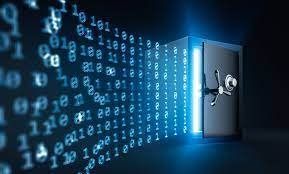Last Updated on April 15, 2023 by
Table of Contents
Introduction:
A lot of websites have stopped using servers that are not SSL encrypted and it is in your best interest to check on the website you wish to visit. The dark web is a section of the internet that cannot be easily accessed without special software, unlike a regular website. It is often referred to as “the deep web” or “hidden web”, as opposed to everyday popular websites such as Facebook and Amazon which are referred to as “surface web”. The term dark Web has come into common usage since 2013, after the Silk Road, an anonymous marketplace operating since 2011 on Tor anonymizing network, was shut down by law enforcement authorities. The dark web offers a degree of anonymity that protects the identity of users, which is not provided by most other types of connections. The Tor network is a decentralized network of servers run by volunteers. The network provides strong encryption for protecting the privacy and anonymity of users. While it is possible to browse anonymously on the regular Internet without Tor, it is very difficult to maintain anonymity in practice because every IP address connected to the Internet is visible to every other computer connected to the same network.
Best Practices to Adopt for Leveraging the Dark Web ( the Deep Web Intelligence way):
The Dark Web is not just a place for cyber criminals and drug dealers. There are professionals out there who use the Dark Web to their advantage, including those who wish to remain anonymous. Regardless of how you plan on using the Dark Web, it is extremely important to follow some best practices when browsing through it.
1. Use the TOR browser
One of the most popular ways to access the Dark Web is with Tor, which stands for The Onion Router and was created by the US Naval Research Laboratory in 2002. Using Tor means that your IP address is hidden from everyone else on Tor, as well as anyone monitoring your network connection which means that your data cannot be intercepted or decrypted by others.
Using Tor is not as simple as it sounds. It is literally a browser that runs on a special operating system designed for this purpose, which is different from your regular browser. You can get free downloads of the TOR browser – such as the 0.2.5 version – over on the TOR Project website, but it is recommended that you install it manually if possible because there are many downloads available with malware attached to them and they may contain viruses and other types of malicious software that could compromise your computer’s security.
You have to have a PGP key (which stands for Pretty Good Privacy) to send and receive messages through Tor.
2. Consider paying with Bitcoins
Bitcoin is the most popular form of payment on the Dark Web because it allows you to use a digital currency instead of hard cash. The only thing you have to be careful about with Bitcoin is that there is no central bank regulating its value, so it can jump around quite a bit and sometimes can be worth more or less than others. The deep web intelligence may track it all!
Bitcoins are increasingly being used on the Dark Web for ponzi schemes and other illegal activities, such as buying drugs, because wire transfers are so expensive. Because online payments are usually conducted through third parties such as banks and credit card processors, Bitcoin transactions are often more private and faster than conventional means of payment.
3. Don’t even think about using credit cards or PayPal
The Dark Web cannot be accessed with a credit card, PayPal, or any other form of payment that does not involve a third party. Most of the time, these third parties have access to your financial information in some way and will be able to expose it if they need to in order to contact you regarding fraud.
Sometimes, hackers will create fake online stores in order to get your credit card information and then use it on the Dark Web. This is called phishing. Always read the Terms and Conditions when logging into websites before handing over any information that could prove to be valuable.
4. Never upload any personal or identifying information
It is not a good idea to have any personal information on your computer at all and if you have sensitive data then consider getting an encrypted hard drive.
5. Compromise is inevitable, so don’t pretend otherwise
The best practices for the Dark Web are similar to those for the rest of the internet in that you should always assume that you are being watched and ready to take precautions accordingly. If you want to spend your time on the basic internet without any concern for privacy or identity protection, then do so – just remember that it will be more difficult to remain anonymous online because there are fewer protections available and it’s much easier for cybercriminals and government agencies to monitor your activity.
Conclusion:
The most important lesson for readers of this article is that there are malicious entities out there trying to steal your personal information. This includes hackers, identity thieves, and government agencies who may be able to access your sensitive data if you do not take precautions. It’s better to think about this in advance and plan accordingly than to find out later that you have been compromised.
As such, it is important that you avoid the Dark Web as much as possible and stick with the traditional internet instead where your identity is protected by law enforcement agencies already. If you do decide to visit the Dark Web, always use a VPN service while browsing so that your IP address cannot be exposed or hacked into.
Read More: 6 Best Tips to Living a Longer and Healthier Life



























